Brian Helgeland Quotes & Sayings
18 most famous Brian Helgeland quotes and sayings. These are the first 10 quotes we have for him. He's a 64 year old American writer born on Jan 17, 1961.
“Working on an adaptation is not as satisfying, because it's not your original work: you're interpreting. With 'L.A. Confidential,' I loved the book. In that case, I felt I was guardian of the work, staying as true to the novel as I could. I've since met the novelist, and he loves the movie and the script.”
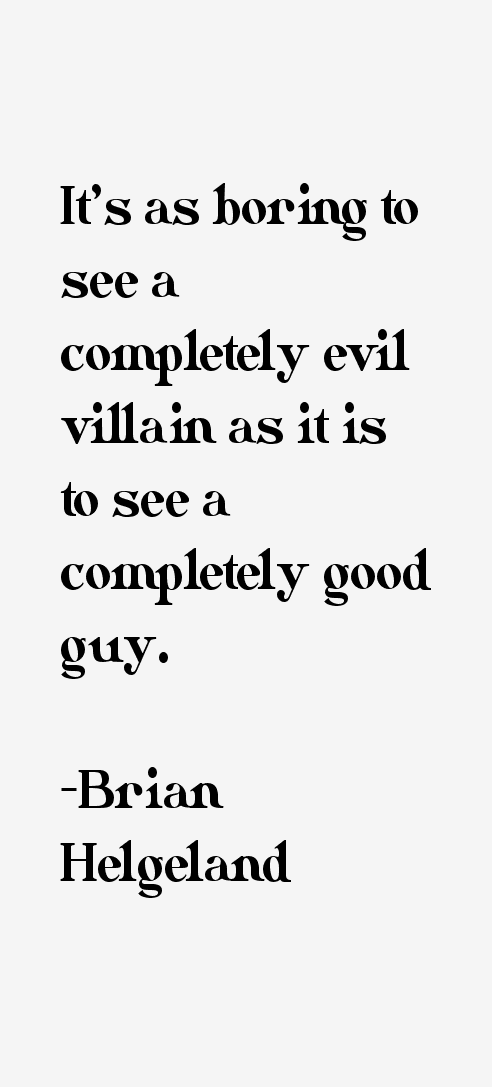
“It's as boring to see a completely evil villain as it is to see a completely good guy.”
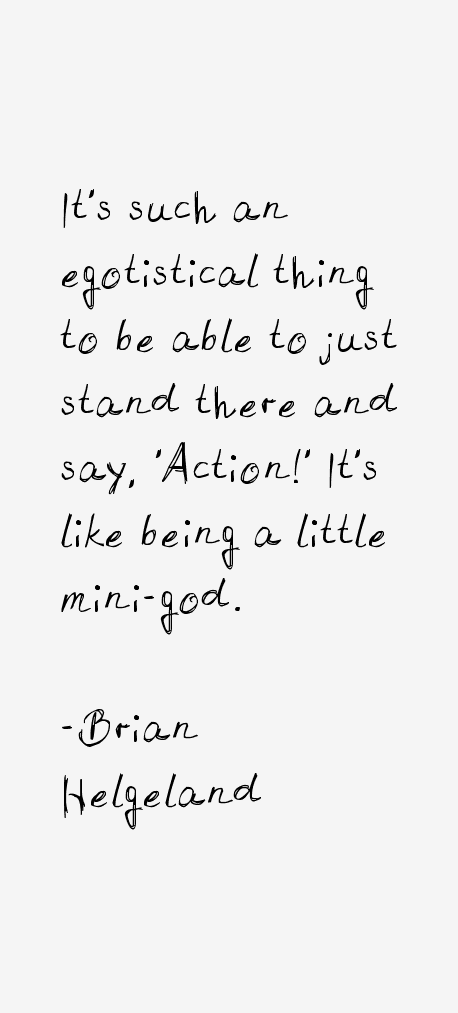
“It's such an egotistical thing to be able to just stand there and say, 'Action!' It's like being a little mini-god.”
“If you write an original, it's like you went in and dug a well, and you hit oil. But an adaptation, it's like the oil well's on fire, and they bring you in to put the fire out and get it working again - or something like that.”
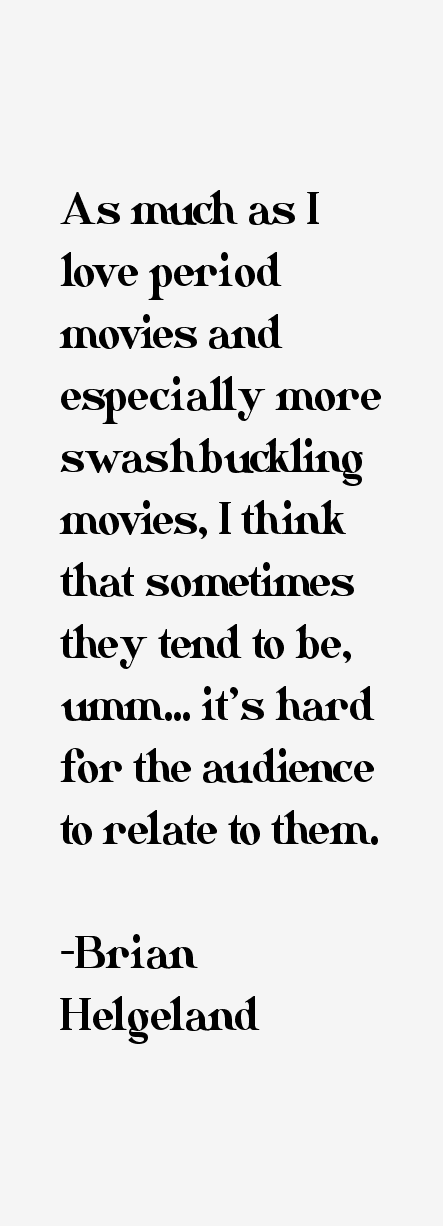
“As much as I love period movies and especially more swashbuckling movies, I think that sometimes they tend to be, umm... it's hard for the audience to relate to them.”
“I don't really write with living actors in mind. I guess I write for dead actors. I'll think of like, you know, Burt Lancaster would be good in this part, and so on. With 'L.A. Confidential,' it was like, 'Wouldn't it be cool if Dean Martin played the Kevin Spacey part?'”
“I think 'Cool Hand Luke' was probably the first movie in which I was aware of the writing as its own separate thing. It was that speech when the guy reads Paul Newman the riot act. The speech about going in the box.”
“You can write anything you want on paper, like blowing up the bridge on the River Kwai, but when you actually have to do that as a director, it's not the same. Ninety percent of directing is not creative - it's putting the theoretical into the practical world.”
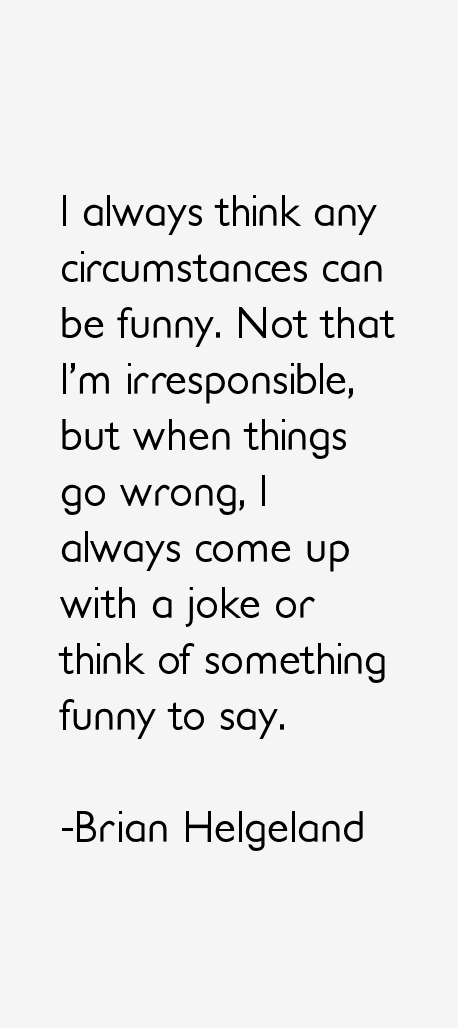
“I always think any circumstances can be funny. Not that I'm irresponsible, but when things go wrong, I always come up with a joke or think of something funny to say.”
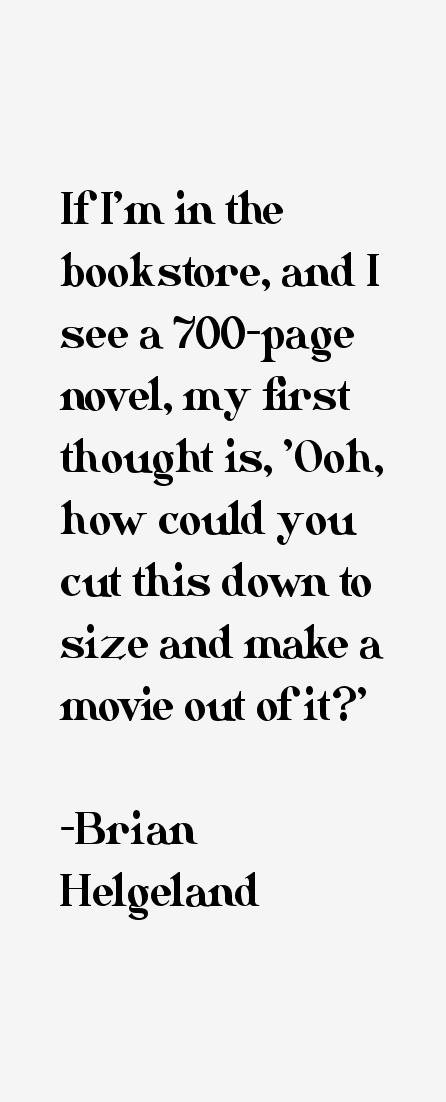
“If I'm in the bookstore, and I see a 700-page novel, my first thought is, 'Ooh, how could you cut this down to size and make a movie out of it?'”
Brian Helgeland Quotes Rating
No Ratings Yet
Leave A Comment
























